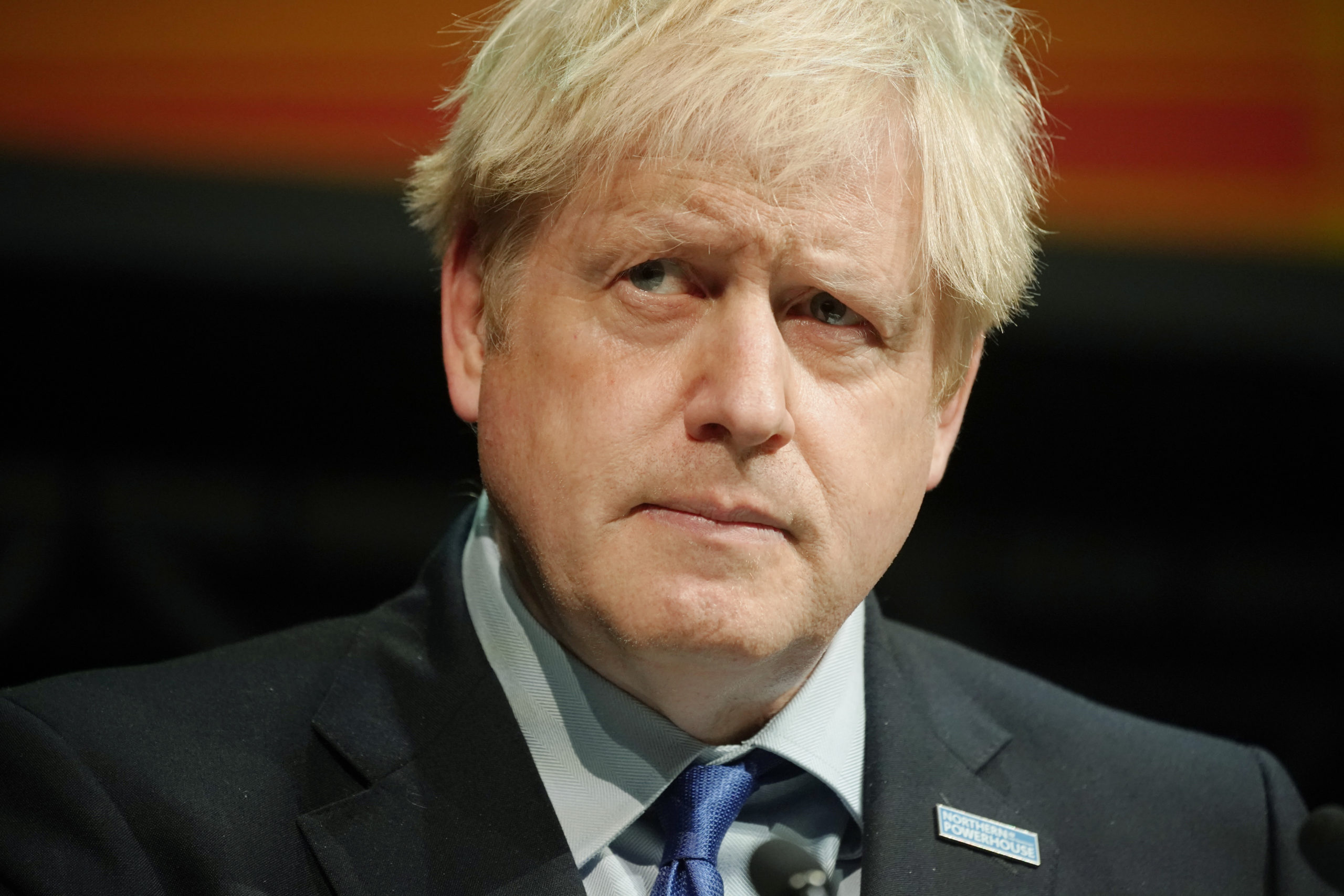Boris Johnson. (Christopher Furlong/WPA Pool /Getty)
MPs from across the UK have insisted that any ban on conversion therapy must also include trans people.
During a debate in Westminster Hall on Monday evening (8 March), MPs urged the government to ban the harmful, pseudoscientific practice.
The debate, triggered by a petition to government signed by more than 250,000 people, saw 20 MPs speak on the urgent need for parliament to introduce tough measures to curb conversion therapy in the UK.
Opening the debate, Conservative MP Elliot Colburn told the stories of three survivors of conversion therapy – two gay men and a trans woman – and said any ban must protect everyone across the LGBT+ spectrum.
He said nobody should be subjected to “these abhorrent interventions” and urged the government to lay out a timeline for the banning of the practice.
“I’d like to end by saying that as a gay man myself, and on behalf of LGBT+ people in the UK and around the world, we are here, our existence is real, our lives are valid and we cannot and do not need to be cured.”
Crispin Blunt said a conversion therapy ban would empower LGBT+ people to call out abuse when it happens to them. He said any ban “must include trans people”.
“They are by far and away the most vulnerable group amongst those in the LGBT+ community,” Blunt said.
“It must include trans people not only because they are the group that need it the most, but because since 2018, when it appeared that trans people were on a trajectory to achieve their rights and protections to live their lives as they wish, supported by the government’s comprehensive LGBT Action Plan, all of that now seems to have changed. They are a community under siege.”
Blunt criticised campaign groups whose “raison d’être” is to push for the rollback of trans rights, and criticised government ministers for listening to the likes of anti-trans pressure group LGB Alliance.
“If legislation doesn’t include the protection of trans people, it will send the unmistakable message to them that their government does not want to protect them, does not value them, and on some level it doesn’t really accept that trans is really a thing, and that awful message would inadvertently make the government party to the practice of conversion therapy itself,” he said.
Conversion therapy ‘disproportionately’ affects trans people
Angela Eagle said it is “almost medieval” to believe that LGBT+ people can have their identities changed.
She said LGBT+ people in the UK are having hitter lives and mental wellbeing “put at serious risk” every day by harmful conversion therapies.
Alicia Kearns noted that conversion therapy “disproportionately” affects trans people and said it would be wrong to exclude them.
Kearns said LGBT+ people currently have no recourse for justice if they are forced, or coerced, into conversion therapy.
She branded the practice as “fraudulent quackery” and argued that LGBT+ people cannot “freely consent” to undergoing conversion therapy because it is a form of torture.
Stephen Doughty spoke of his experience as a gay Christian and said he was lucky to have seen a therapist who was supportive of his sexuality.
It boils down to one phrase: Let’s get on with it.
Closing his speech, Doughty said he stands with the trans and non-binary community and said banning conversion therapy is a “human rights issue”.
Alyn Smith spoke of the huge numbers of trans people who have faced some form of conversion therapy, and hit out at the government for its lack of action on a ban.
“It boils down to one phrase: Let’s get on with it,” he said. “The only people speaking in defence of it are quacks, bigots and bullies.”
Charlotte Nichols said conversion therapy is a “disgusting” practice and said being LGBT+ is not a “sickness”.
She hit out at those who peddle conversion therapies and said they are perpetuating a “fraud on the public”.
Nichols spoke of her own experiences as a bisexual woman, and said queer people in the UK have waited “long enough” for the government to take action.
Kemi Badenoch, secretary of state for equalities, spoke to MPs virtually about the government’s plans to ban the abhorrent practice.
She insisted that the government is taking plans to ban conversion therapy “very seriously”, but said it is still gathering information about what a ban should look like.
Badenoch said the government wants to ensure that they do not push conversion therapy underground by banning it. She said government officials have commissioned research to examine the experiences of conversion therapy survivors, which will help them to come up with a “comprehensive plan”.
“We are in conversations with international counterparts, both those who have introduced the variety of legislative and non-legislative actions, and those who plan to,” Badenoch said.
“While it is important to figure out what will work in a UK context, we may also look to our friend around the world to understand the effectiveness of different approaches. Honourable members have mentioned, for example, that Germany has implemented a ban on conversion therapy for minors only, or when an adult has been covered, and I understand other countries such as Malta have also taken this route.
“However, we understand that different countries will take different approaches that best suit their needs. This is not a one-size-fits-all approach.”
On 28 March, it will have been 1,000 days since the Tories first pledged to “eradicate” conversion therapy as part of its LGBT+ Action Plan.
While Boris Johnson said the practice has “no place” in a civilised society in July 2020, equalities minister Liz Truss later said the government would have to do more research before proceeding with a ban.
Conversion therapy has been widely condemned by almost every major psychiatric body, and a number of nations and states have banned the practice in acknowledgement of the trauma it inflicts upon queer people.
